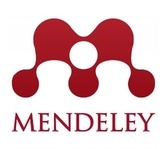collections_bookmark Focus and Scope
FOCUS
This journal focuses on Islamic economics, islamic business, islamic management, and islamic philantrophy.
SCOPE
This Journal specializes on research-based manuscript of:
1. Islamic economics
2. Islamic business
3. Islamic management (Islamic financial management, Islamic marketing management, islamic human resource management, Islamic operational management)
4. Islamic philanthropy.
create_new_folder Section Policies
Articles
device_hub Peer Review Process
JIEMB: published twice in a year, is a peer-reviewed journal and specializes in Islamic Economy, Business, and Management thought, research and present issues.
All manuscripts submitted to this journal must follow focus and scope, and author guidelines of this journal. The submitted manuscripts must address scientific merit or novelty appropriate to the focus and scope. All manuscripts must be free from plagiarism contents. All authors are suggested to use plagiarism detection software to do the similarity checking. Editors check the plagiarism detection of articles in this journal by using a Turnitin software.
The research article submitted to this journal will be double blind peer-reviewed at least 2 (two) or more expert reviewers. The reviewers give scientific valuable comments improving the contents of the manuscript.
Final decision of articles acceptance will be made by Editors according to reviewers comments. Publication of accepted articles including the sequence of published articles will be made by Editor in Chief by considering sequence of accepted date and geographical distribution of authors as well as thematic issue.
event_note Publication Frequency
Journal of Islamic Economics, Management, and Business (JIEMB) is published twice a year, every April and October
copyright Open Access Policy
This journal provides immediate open access to its content on the principle that making research freely available to the public supports a greater global exchange of knowledge.
unarchive Archiving
Journal of Islamic Economics Management and Business (JIEMB) utilizes the Public Knowledge Project Private LOCKSS Network (PKP-PLN) to create a distributed archiving system among participating libraries, which are permitted to create permanent archives of the journal for purposes of preservation and restoration. Read More
bookmark_border About Journal
JIEMB: Journal of Islamic Economics, Management, and Business is a peer-reviewed journal, published biannually by Magister of Sharia Economics, Faculty of Islamics Economics and Business, Universitas Islam Negeri (UIN) Walisongo Semarang Indonesia. It is available online as open access sources as well as in print. This statement clarifies the ethical behaviour of all parties involved in the act of publishing an article in this journal, including the author, the editor-in-chief, the Editorial Board, the reviewer, and the publisher.
bookmark_border Publication Ethics and Malpractice Statement
Ethical Guideline for Journal Publication
The publication of an article in JIEMB: Journal of Islamic Economics, Management, and Business is an essential building block in the development of a coherent and respected network of knowledge. It is a direct reflection of the quality of the work of the authors and the institutions that support them. Peer-reviewed articles support and embody the scientific methods. It is therefore important to agree upon standards of expected ethical behavior for all parties involved in the act of publishing: the author, the editor, the reviewer, the publisher, and the society. As the publisher of JIEMB: Journal of Islamic Economics, Management, and Business, the publisher takes its duties of guardianship over all stages of publishing seriously and it recognizes its ethical and other responsibilities. Magister of Sharia Economics committed to ensuring that advertising, reprint or other commercial revenue has no impact or influence on editorial decisions. This statement is based on COPE’s Best Practice Guidelines for Journal Editors.
Publication Decisions
The editor of the JIEMB: Journal of Islamic Economics, Management, and Business is responsible for deciding which of the articles submitted to the journal should be published. The validation of the work in question and its importance to researchers and readers must always drive such decisions. The editors may be guided by the policies of the journal's editorial board and constrained by such legal requirements as shall then be in force regarding libel, copyright infringement and plagiarism. The editors may confer with other editors or reviewers in making this decision.
Fair Play
An editor at any time evaluates manuscripts for their intellectual content without regard to race, gender, sexual orientation, religious belief, ethnic origin, citizenship, or political philosophy of the authors.
Confidentiality
The editor and any editorial staff must not disclose any information about a submitted manuscript to anyone other than the corresponding author, reviewers, potential reviewers, other editorial advisers, and the publisher, as appropriate.
Disclosure and Conflicts of Interest
Unpublished materials disclosed in a submitted manuscript must not be used in an editor's own research without the express written consent of the author.
Duties of Reviewers
Contribution to Editorial Decisions
Peer review assists the editor in making editorial decisions and through the editorial communications with the author may also assist the author in improving the paper.
Promptness
Any selected referee who feels unqualified to review the research reported in a manuscript or knows that its prompt review will be impossible should notify the editor and excuse himself from the review process.
Confidentiality
Any manuscripts received for review must be treated as confidential documents. They must not be shown to or discussed with others except as authorized by the editor.
Standards of Objectivity
Reviews should be conducted objectively. Personal criticism of the author is inappropriate. Referees should express their views clearly with supporting arguments.
Acknowledgment of Sources
Reviewers should identify relevant published work that has not been cited by the authors. Any statement that an observation, derivation, or argument had been previously reported should be accompanied by the relevant citation. A reviewer should also call to the editor's attention any substantial similarity or overlap between the manuscript under consideration and any other published paper of which they have personal knowledge.
Disclosure and Conflict of Interest
Privileged information or ideas obtained through peer review must be kept confidential and not used for personal advantage. Reviewers should not consider manuscripts in which they have conflicts of interest resulting from competitive, collaborative, or other relationships or connections with any of the authors, companies, or institutions connected to the papers.
Duties of Authors
Reporting standards
Authors of reports of original research should present an accurate account of the work performed as well as an objective discussion of its significance. Underlying data should be represented accurately in the paper. A paper should contain sufficient detail and references to permit others to replicate the work. Fraudulent or knowingly inaccurate statements constitute unethical behaviour and are unacceptable.
Originality and Plagiarism
The authors should ensure that they have written entirely original works, and if the authors have used the work and/or words of others that this has been appropriately cited or quoted.
Multiple, Redundant or Concurrent Publication
An author should not, in general, publish manuscripts describing essentially the same research in more than one journal or primary publication. Submitting the same manuscript to more than one journal concurrently constitutes unethical publishing behaviour and is unacceptable.
Acknowledgement of Sources
Proper acknowledgement of the work of others must always be given. Authors should cite publications that have been influential in determining the nature of the reported work.
Authorship of the Paper
Authorship should be limited to those who have made a significant contribution to the conception, design, execution, or interpretation of the reported study. All those who have made significant contributions should be listed as co-authors. Where there are others who have participated in certain substantive aspects of the research project, they should be acknowledged or listed as contributors. The corresponding author should ensure that all appropriate co-authors and no inappropriate co-authors are included on the paper and that all co-authors have seen and approved the final version of the paper and have agreed to its submission for publication.
Disclosure and Conflicts of Interest
All authors should disclose in their manuscript any financial or another substantive conflict of interest that might be construed to influence the results or interpretation of their manuscript. All sources of financial support for the project should be disclosed.
Fundamental errors in published works
When an author discovers a significant error or inaccuracy in his/her own published work, it is the author’s obligation to promptly notify the journal editor or publisher and cooperate with the editor to retract or correct the paper.
bookmark_border Plagiarism Policy
Screening for Plagiarism
Articles submitted to Journal of Islamic Economics Management and Business (JIEMB) will be filtered using Turnitin software, with a maximum of 20% similarities permitted.
Plagiarism includes:
- Word-for-word plagiarism – borrowing another author’s language word-for-word, but not putting it in quotation marks or citing it correctly.
- Source plagiarism – using the ideas of others without giving recognition or citing the source explicitly.
- Plagiarism of authorship – presenting another author's work as one’s own.
- Self-plagiarism - authors publishing an article in more than one journal by recycling papers. The important issue related to self-plagiarism is that when citing one's own work, significant changes must have been made to the new article. The previous article should only contain a small percentage of any new article produced. So, readers will receive new information, which may inspired by but different from the previous articles.
bookmark_border Reference Manager
The manuscript that is registered must use the manager's reference application: Mendeley.
bookmark_border Revenue Sources, Advertising, and Direct Marketing Policy
Revenue Sources
The operations of Journal of Islamic Economics Management and Business (JIEMB) are funded by the State (the Ministry of Religious Affairs Republic of Indonesia), through Daftar Isian Pelaksanaan Anggaran (DIPA) of Universitas Islam Negeri Walisongo Semarang, Indonesia.
Advertising
Journal of Islamic Economics Management and Business (JIEMB) does not accept advertising from any parties.
Direct Marketing
In promoting the journal and publications to the public, Journal of Islamic Economics Management and Business (JIEMB) attempts to avoid actions detrimental to other parties (e.g., spreading spam) and to avoid misleading information between prospective authors and the publishers.
bookmark_border Author Fees
Journal of Islamic Economics Management and Business (JIEMB) does not charge any submission or publication fees, and no fees are incurred for article processing or for the review process.
Note:
Any translation or proofreading costs are paid by the author. Translation and proofreading services are provided by external parties.





